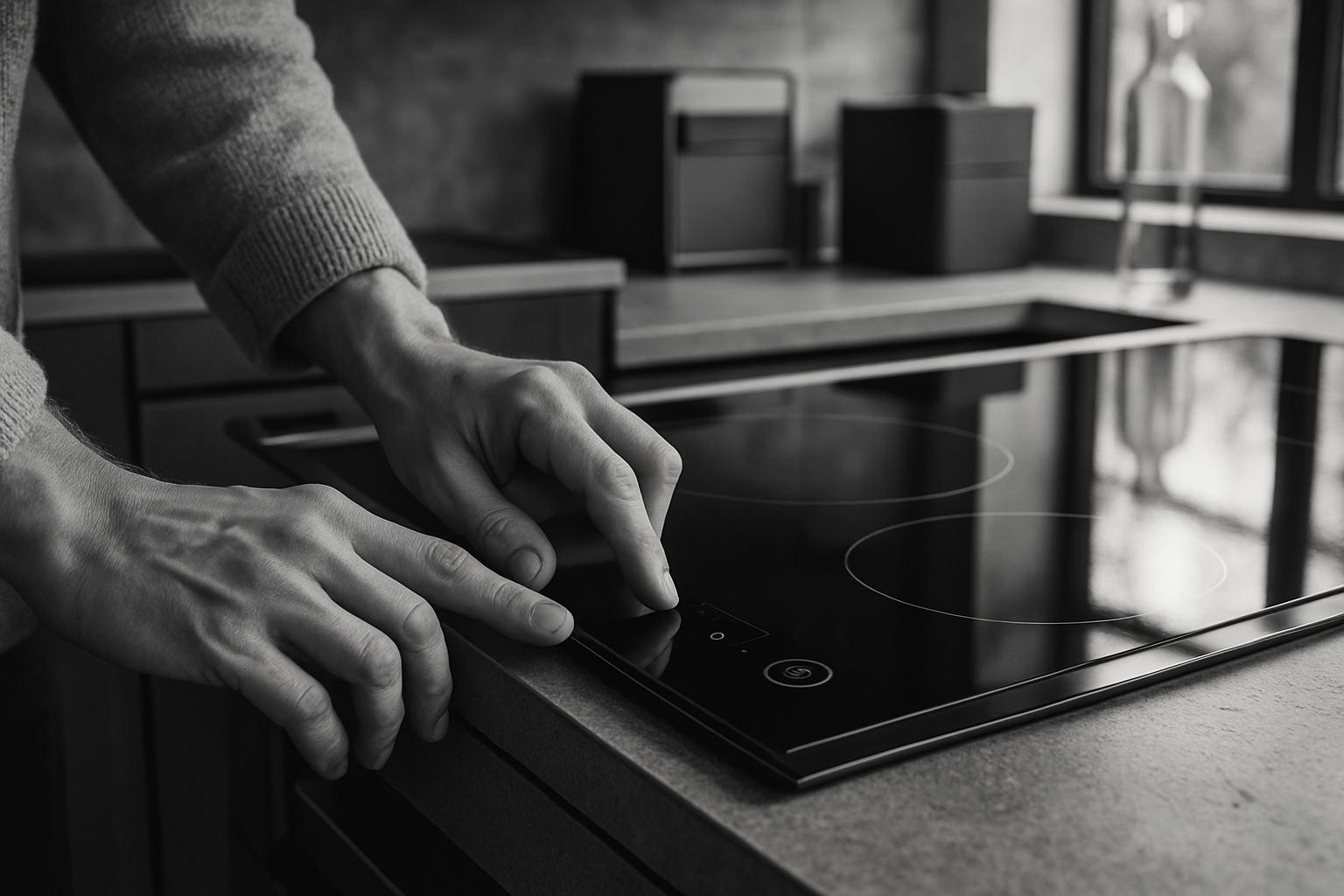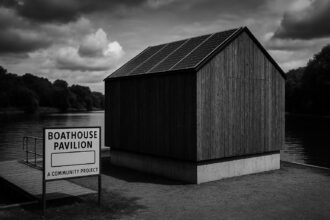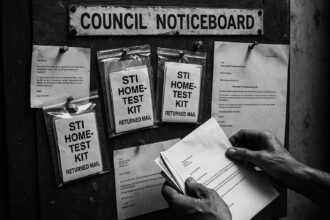Through a London Experience Centre, RIBA‑approved CPD and in‑use carbon tools, Fisher & Paykel reframes appliances as lifecycle-driven elements that can cut operational emissions while preserving design ambition.
Fisher & Paykel’s Design for a Changing World makes a clear claim: the kitchen is shifting from being a merely visual statement or a performance space to a focal point of responsibility. With carbon emissions now shaping conversations across architecture, construction, and regulation, the company argues that kitchens can and should be designed to support sustainability goals as a matter of course. The philosophy frames product development as a lifecycle endeavour, aiming to blend beauty, durability and environmental performance—from the move toward electric cooking to innovations in fabric care. The London Experience Centre at 98 Wigmore Street serves as a live demonstration ground for this approach, where modular refrigeration, induction cooktops and flexible dishwashing systems are showcased in a real, working context. The experience is designed not only to illustrate how products integrate with modern architectural intent but to encourage thought on resource use and material efficiency. The brand’s 2024 Carbon Impact Statement provides governance-level transparency on emissions across manufacturing, transport and product use, and reports measurable progress such as upgrades to energy ratings on refrigeration products to align with the latest efficiency standards. The company also invites professionals to engage with its CPD programme—a RIBA-approved session titled Reducing Carbon Footprint through Sustainable Appliance Choices in Residential Environments—hosted in practice or at the London Experience Centre, aimed at guiding electrification, energy efficiency and responsible product selection. CPD bookings are emphasised as a practical conduit for translating theory into specification, with in-use carbon estimates and other tools referenced to support early, informed decision-making. In this shifting landscape, Fisher & Paykel positions itself not merely as a supplier of appliances but as a partner offering insight, innovation and a shared commitment to lower-impact living.
The practical demonstrations and professional outreach extend beyond a single showroom. The London Experience Centre page highlights collaboration with Brinkworth to translate Designed in Aotearoa New Zealand into a working, aspirational kitchen environment. Visitors are invited to explore what the brand calls Mastery of Temperature through the Social Kitchen, where minimal and contemporary appliance configurations sit alongside a fabric care ecosystem. The content stresses sustainability alongside aesthetics, emphasising how integrated appliances can support architectural intent while advancing resource efficiency. In addition to showroom experiences, Fisher & Paykel underscores a broader industry role through its CPD offering, guiding specifiers and designers on key ideas around electrification, energy efficiency and responsible product selection, supported by practical tools and the in-use carbon estimates framework. The material presents a united narrative: careful product specification, informed by climate considerations and carbon accounting, can meaningfully shrink a project’s carbon footprint without compromising design ambition.
Around the world, the brand’s Experience Centres network is presented as a platform for designers and homeowners to engage with performance, materials and architecture-minded appliance integration. The Experience Centres page outlines locations across multiple continents—London, Auckland, Toronto, New York, Costa Mesa, Melbourne, Sydney and Singapore—each designed to offer immersive encounters led by chefs and product experts that illuminate what Fisher & Paykel calls Mastery of Temperature, as well as the company’s approach to fabric care and integrated ecosystems. These spaces are described as opportunities to explore how connected appliances, better materials and tighter collaboration between suppliers, designers and clients can deliver higher efficiency, durability and responsible specification for contemporary, low-impact living. The in-use energy data and the broader ecosystem are positioned as tools to help translate ambitious design goals into practical, day-to-day efficiency gains for homes and projects.
For buyers and policymakers alike, the emphasis on in-use energy carbon emissions estimates provides a concrete lens on day-to-day decision-making. The in-use energy tool multiplies regional energy consumption by local emissions factors to generate a kilogram CO2e figure per year or per cycle, offering a apples-to-apples basis for comparing appliances today. The guide clarifies that these estimates reflect in-use energy rather than a full lifecycle assessment and notes that data are updated yearly to reflect evolving energy profiles and electrification trends. In a market increasingly driven by electrification and smarter, more efficient devices, the tool reinforces the practical value of choosing appliances that deliver lower ongoing emissions while maintaining performance. Taken together, Fisher & Paykel’s showrooms, CPD offerings and consumer-focused energy guidance position the brand as a partner in the industry’s broader move toward lower-carbon, more enduring residential design.
 Reference Map:
Reference Map:
Source: Noah Wire Services
- https://www.architectsjournal.co.uk/sponsored-content/design-for-a-changing-world-fisher-paykels-approach-to-carbon-conscious-kitchen-design – Please view link – unable to able to access data
- https://www.fisherpaykel.com/uk/inspiration/experience-centres/london – Fisher & Paykel’s London Experience Centre page describes a flagship showroom on 98 Wigmore Street, created in collaboration with Brinkworth to translate Designed in Aotearoa New Zealand into a working, aspirational kitchen environment. Visitors experience Mastery of Temperature experiences in the Social Kitchen, with minimal and contemporary appliance configurations and a fabric care ecosystem. The content emphasises sustainability alongside aesthetics, highlighting how integrated appliances support architectural intent and resource efficiency. The page also foregrounds an in situ CPD opportunity, invites professionals to arrange visits, and demonstrates how product design and space planning can advance sustainable residential design for future generations.
- https://www.fisherpaykel.com/uk/inspiration/experience-centres – Experience Centres page outlines Fisher & Paykel’s global showroom network, including London’s 98 Wigmore Street, Auckland, Toronto, New York, Costa Mesa, Melbourne, Sydney and Singapore. It promotes immersive, chef‑led encounters that illuminate ‘Mastery of Temperature’ cooking, fabric care and architecture‑minded appliance integration. The page positions these spaces as platforms for designers and homeowners to explore performance, materials and how a connected appliance ecosystem can harmonise design ambitions with practical sustainability goals. It invites professionals to book experiences, register products and engage with brand experts to refine residential schemes around higher efficiency, durability and responsible specification for modern, low‑impact living today.
- https://www.fisherpaykel.com/eu/carbon-impact/ – Fisher & Paykel present a carbon‑first approach, describing a corporate strategy aimed at accelerating decarbonisation across products, manufacturing, and ecosystems. The page explains using the Greenhouse Gas Protocol to life cycle‑analyse appliances, identifying lifetime energy use as the primary emissions source and prioritising reductions through efficiency, electrification and low‑carbon energy. It outlines ambitious goals: a 50% cut in carbon emissions per appliance sold by 2030 and 90% by 2050 from a 2020 baseline, with annual progress disclosures via a public Carbon Impact Report. The section also highlights ongoing initiatives including Home Solutions and a Carbon Zero SmartHome R&D Institute globally.
- https://www.ribacpd.com/cpd/detail/reducing-carbon-footprint-through-sustainable-appliance-choices-in-residential-environments/rW25sZFfAYG24jBqBGyZUK – This CPD overview explains how carbon emissions sit at the heart of broader sustainability in architecture and interior design. Fisher & Paykel present an introduction to specifying low-carbon domestic appliances, emphasising the need for collaboration among suppliers, designers and the wider construction sector to reduce emissions for future generations. Delegates are guided through climate considerations, carbon accounting in appliance manufacture, and practical principles for low-carbon specification. The material covers current technology advances and the evolving role of connected appliances, aiming to equip professionals with knowledge to integrate electrification and efficiency into residential projects responsibly and effectively for healthier homes worldwide.
- https://www.fisherpaykel.com/us/in-use-energy-carbon-emissions-estimates-guide – Fisher & Paykel describe In-use Energy Carbon Emissions Estimates as a buyer-focused decision tool. The guide explains that product energy consumption data, multiplied by region-specific emissions factors, yields a kilogram CO2e figure per year or per cycle, aiding apples-to-apples comparisons between appliances. It emphasises that these estimates reflect in-use energy and are not a full lifecycle assessment, enabling customers to gauge ongoing carbon impact. The resource also notes regional variations in data, updates on a yearly basis, and how the estimate supports electrification, efficiency improvements, and informed product selection within regulated markets. This empowers purchasers to prioritise lower-emission choices today.
- https://www.fisherpaykel.com/uk/cooling/refrigeration/contemporary-refrigeration/569l-series-7-french-door-refrigerator-freezer–rf610adx6-26687.html – The RF610ADX6 product page presents the 569L French‑door refrigerator with detailed energy data, including an energy usage figure of 297 kWh/year and an In-use Energy Carbon Emissions Estimate of 57.6 kg CO2e/year. It explains ActiveSmart Foodcare technology, humidity control and adaptive defrost as design features that stabilise temperatures and optimise energy performance. The page emphasises design quality, materials and build longevity while noting the appliance’s energy rating and carbon emissions metric. This concrete example illustrates how Fisher & Paykel communicates carbon-related performance to consumers and supports informed purchasing decisions focused on efficiency and reduced waste across homes and daily life.
Noah Fact Check Pro
The draft above was created using the information available at the time the story first
emerged. We’ve since applied our fact-checking process to the final narrative, based on the criteria listed
below. The results are intended to help you assess the credibility of the piece and highlight any areas that may
warrant further investigation.
Freshness check
Score:
3
Notes:
 The narrative is largely promotional content that has circulated previously across company pages and trade announcements — not brand‑new reporting. Earliest public traces of the same Experience Centre narrative date back to at least 30 Sep 2022 (announcement of a UK/ London flagship on Wigmore Street). ([kandbnews.co.uk](https://www.kandbnews.co.uk/news/fisher-paykel-to-open-london-experience-centre/?utm_source=chatgpt.com))
The narrative is largely promotional content that has circulated previously across company pages and trade announcements — not brand‑new reporting. Earliest public traces of the same Experience Centre narrative date back to at least 30 Sep 2022 (announcement of a UK/ London flagship on Wigmore Street). ([kandbnews.co.uk](https://www.kandbnews.co.uk/news/fisher-paykel-to-open-london-experience-centre/?utm_source=chatgpt.com))  The company’s Carbon Impact report (supporting the emissions claims) was published Nov 2024, which is a later data update used in the narrative. ([fisherpaykel.com](https://www.fisherpaykel.com/on/demandware.static/-/Library-Sites-FisherPaykelSharedLibrary/default/dw5aba2ad3/web-slides/journey-webslides/FP_Carbon-Impact-Report-2022_AW01_20241204.pdf))
The company’s Carbon Impact report (supporting the emissions claims) was published Nov 2024, which is a later data update used in the narrative. ([fisherpaykel.com](https://www.fisherpaykel.com/on/demandware.static/-/Library-Sites-FisherPaykelSharedLibrary/default/dw5aba2ad3/web-slides/journey-webslides/FP_Carbon-Impact-Report-2022_AW01_20241204.pdf))  Multiple trade/PR outlets republished the same messaging (KBB/KBN/INEX/industry press), indicating the piece mostly repackages Fisher & Paykel marketing across channels rather than offering exclusive reporting. ([inex-online.com](https://www.inex-online.com/features/archive/1975/fisher-paykel-opens-experience-centre-in-london-s-iconic-design-quarter?utm_source=chatgpt.com), [kbbreview.com](https://www.kbbreview.com/60471/news/fisher-paykel-opens-first-european-experience-centre-in-wigmore-street/?utm_source=chatgpt.com))
Multiple trade/PR outlets republished the same messaging (KBB/KBN/INEX/industry press), indicating the piece mostly repackages Fisher & Paykel marketing across channels rather than offering exclusive reporting. ([inex-online.com](https://www.inex-online.com/features/archive/1975/fisher-paykel-opens-experience-centre-in-london-s-iconic-design-quarter?utm_source=chatgpt.com), [kbbreview.com](https://www.kbbreview.com/60471/news/fisher-paykel-opens-first-european-experience-centre-in-wigmore-street/?utm_source=chatgpt.com))
Quotes check
Score:
2
Notes:
 Direct or near‑verbatim quotes attributed to company executives (for example CEO Daniel Witten‑Hannah) appear in earlier announcements and trade coverage — these are reused rather than exclusive. Earliest identical executive wording appears in company/trade coverage around the Wigmore Street launch. ([kandbnews.co.uk](https://www.kandbnews.co.uk/news/fisher-paykel-prepares-to-open-london-experience-centre/?utm_source=chatgpt.com), [kbbreview.com](https://www.kbbreview.com/60471/news/fisher-paykel-opens-first-european-experience-centre-in-wigmore-street/?utm_source=chatgpt.com))
Direct or near‑verbatim quotes attributed to company executives (for example CEO Daniel Witten‑Hannah) appear in earlier announcements and trade coverage — these are reused rather than exclusive. Earliest identical executive wording appears in company/trade coverage around the Wigmore Street launch. ([kandbnews.co.uk](https://www.kandbnews.co.uk/news/fisher-paykel-prepares-to-open-london-experience-centre/?utm_source=chatgpt.com), [kbbreview.com](https://www.kbbreview.com/60471/news/fisher-paykel-opens-first-european-experience-centre-in-wigmore-street/?utm_source=chatgpt.com))  If the article presents quotes without new sourcing or context, treat them as recycled PR copy.
If the article presents quotes without new sourcing or context, treat them as recycled PR copy.
Source reliability
Score:
6
Notes:
 Strengths: Fisher & Paykel is a legitimate, well‑known appliance manufacturer and the narrative links to primary company materials (Experience Centre pages, downloadable Carbon Impact Report) and an accredited RIBA CPD listing — these are verifiable. ([fisherpaykel.com](https://www.fisherpaykel.com/uk/inspiration/experience-centres), [ribacpd.com](https://www.ribacpd.com/cpd/detail/reducing-carbon-footprint-through-sustainable-appliance-choices-in-residential-environments/rW25sZFfAYG24jBqBGyZUK))
Strengths: Fisher & Paykel is a legitimate, well‑known appliance manufacturer and the narrative links to primary company materials (Experience Centre pages, downloadable Carbon Impact Report) and an accredited RIBA CPD listing — these are verifiable. ([fisherpaykel.com](https://www.fisherpaykel.com/uk/inspiration/experience-centres), [ribacpd.com](https://www.ribacpd.com/cpd/detail/reducing-carbon-footprint-through-sustainable-appliance-choices-in-residential-environments/rW25sZFfAYG24jBqBGyZUK))  Caveats: the piece is sponsored promotional content (published as paid/promotional copy on an industry publication), so factual claims about performance and emissions are self‑reported by the company (possible framing bias/greenwashing risk). Treat company metrics as self‑reported until independently audited.
Caveats: the piece is sponsored promotional content (published as paid/promotional copy on an industry publication), so factual claims about performance and emissions are self‑reported by the company (possible framing bias/greenwashing risk). Treat company metrics as self‑reported until independently audited.
Plausability check
Score:
7
Notes:
 The core technical claims are plausible and supported by the company’s own tools and reports: the in‑use energy / carbon‑estimate tool exists and the firm published a Carbon Impact Report (Nov 2024) with stated reductions (e.g. 13% per‑appliance reduction 2020→2022). ([fisherpaykel.com](https://www.fisherpaykel.com/us/in-use-energy-carbon-emissions-estimates-guide))
The core technical claims are plausible and supported by the company’s own tools and reports: the in‑use energy / carbon‑estimate tool exists and the firm published a Carbon Impact Report (Nov 2024) with stated reductions (e.g. 13% per‑appliance reduction 2020→2022). ([fisherpaykel.com](https://www.fisherpaykel.com/us/in-use-energy-carbon-emissions-estimates-guide))  However, these are company‑calculated figures and the narrative explicitly notes the in‑use estimates do not equal a full lifecycle assessment — independent verification (third‑party LCA or audit) is not cited in the piece and was not found in mainstream independent reporting. If the report recycles older product claims (e.g. Experience Centre launch messaging from 2022–2024) alongside updated Carbon data, that should be flagged as recycled + updated content. ([kbbreview.com](https://www.kbbreview.com/49752/news/fisher-paykel-to-open-uk-flagship-showroom-on-wigmore-street-in-2023/?utm_source=chatgpt.com), [fisherpaykel.com](https://www.fisherpaykel.com/on/demandware.static/-/Library-Sites-FisherPaykelSharedLibrary/default/dw5aba2ad3/web-slides/journey-webslides/FP_Carbon-Impact-Report-2022_AW01_20241204.pdf))
However, these are company‑calculated figures and the narrative explicitly notes the in‑use estimates do not equal a full lifecycle assessment — independent verification (third‑party LCA or audit) is not cited in the piece and was not found in mainstream independent reporting. If the report recycles older product claims (e.g. Experience Centre launch messaging from 2022–2024) alongside updated Carbon data, that should be flagged as recycled + updated content. ([kbbreview.com](https://www.kbbreview.com/49752/news/fisher-paykel-to-open-uk-flagship-showroom-on-wigmore-street-in-2023/?utm_source=chatgpt.com), [fisherpaykel.com](https://www.fisherpaykel.com/on/demandware.static/-/Library-Sites-FisherPaykelSharedLibrary/default/dw5aba2ad3/web-slides/journey-webslides/FP_Carbon-Impact-Report-2022_AW01_20241204.pdf))
Overall assessment
Verdict (FAIL, OPEN, PASS): OPEN
Confidence (LOW, MEDIUM, HIGH): MEDIUM
Summary:
 OPEN — The narrative is coherent and largely accurate as corporate marketing: it aligns with Fisher & Paykel’s own Experience Centre pages, RIBA CPD listing and the company’s Carbon Impact Report (published Nov 2024). ([fisherpaykel.com](https://www.fisherpaykel.com/uk/inspiration/experience-centres), [ribacpd.com](https://www.ribacpd.com/cpd/detail/reducing-carbon-footprint-through-sustainable-appliance-choices-in-residential-environments/rW25sZFfAYG24jBqBGyZUK))
OPEN — The narrative is coherent and largely accurate as corporate marketing: it aligns with Fisher & Paykel’s own Experience Centre pages, RIBA CPD listing and the company’s Carbon Impact Report (published Nov 2024). ([fisherpaykel.com](https://www.fisherpaykel.com/uk/inspiration/experience-centres), [ribacpd.com](https://www.ribacpd.com/cpd/detail/reducing-carbon-footprint-through-sustainable-appliance-choices-in-residential-environments/rW25sZFfAYG24jBqBGyZUK))  Strengths: verifiable company documentation and an accredited CPD lend credibility to the claims.
Strengths: verifiable company documentation and an accredited CPD lend credibility to the claims.  Major risks: this is paid/sponsored promotional copy that repackages prior PR (earliest similar public messaging at least as far back as 30 Sep 2022) rather than independent journalism, and several executive quotes and framing are reused from earlier announcements — raising the risk of recycled content and selective self‑reporting. ([kandbnews.co.uk](https://www.kandbnews.co.uk/news/fisher-paykel-to-open-london-experience-centre/?utm_source=chatgpt.com))
Major risks: this is paid/sponsored promotional copy that repackages prior PR (earliest similar public messaging at least as far back as 30 Sep 2022) rather than independent journalism, and several executive quotes and framing are reused from earlier announcements — raising the risk of recycled content and selective self‑reporting. ([kandbnews.co.uk](https://www.kandbnews.co.uk/news/fisher-paykel-to-open-london-experience-centre/?utm_source=chatgpt.com))  Recommendation: label the piece as sponsored/marketing to readers, treat company emissions figures as self‑reported (seek third‑party LCA or audit for high‑stakes use), and note that much of the descriptive material (Experience Centre, CPD, ‘Design for a changing world’ campaign) has been public for months to years — not newly reported. ([fisherpaykel.com](https://www.fisherpaykel.com/uk/inspiration/experience-centres))
Recommendation: label the piece as sponsored/marketing to readers, treat company emissions figures as self‑reported (seek third‑party LCA or audit for high‑stakes use), and note that much of the descriptive material (Experience Centre, CPD, ‘Design for a changing world’ campaign) has been public for months to years — not newly reported. ([fisherpaykel.com](https://www.fisherpaykel.com/uk/inspiration/experience-centres))













